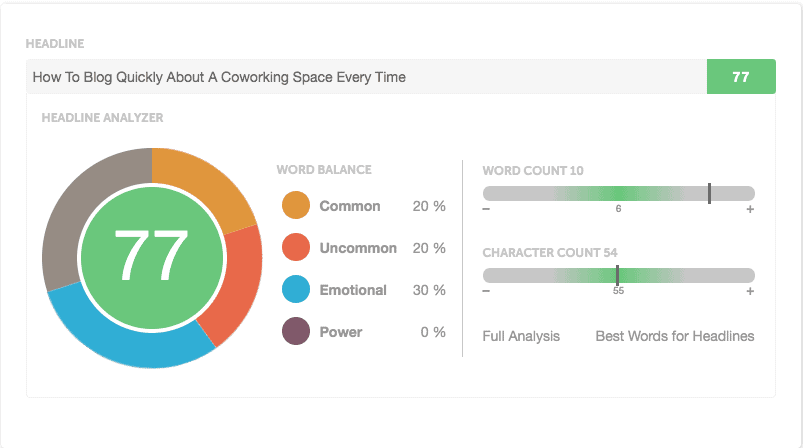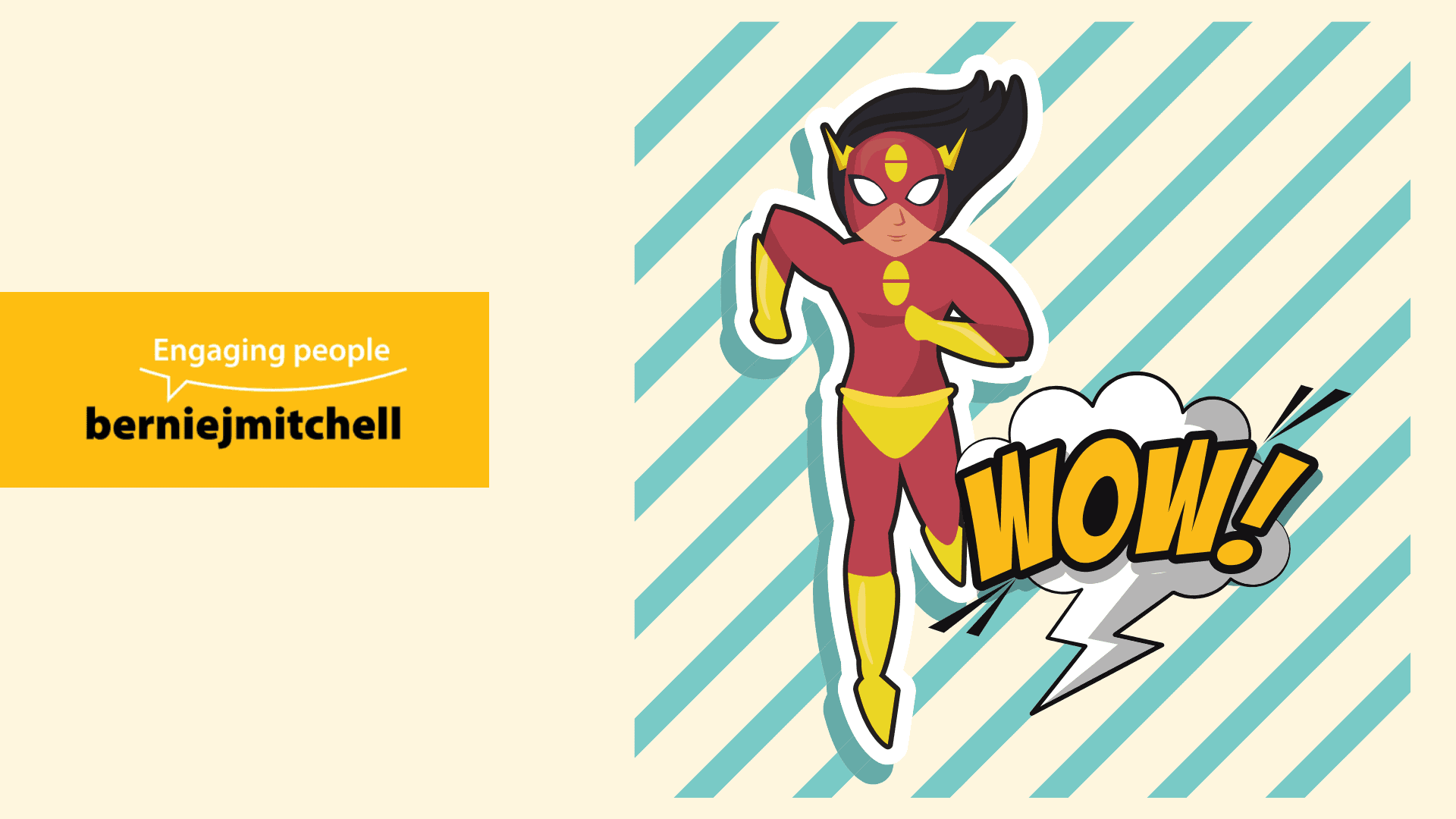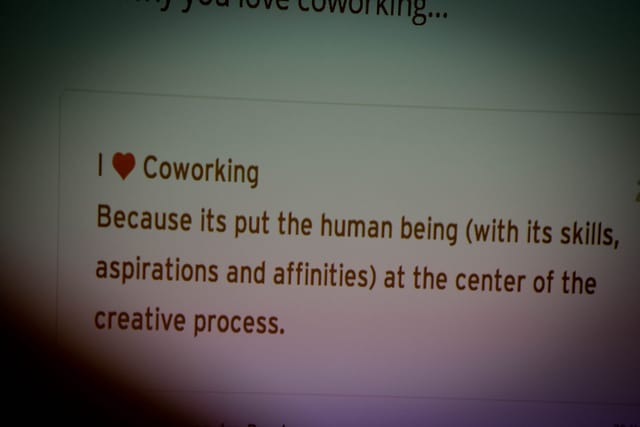“We just don’t have time to write!”
Is what I hear all the time from owners and marketing people who are responsible for running coworking spaces.
Every week I’m talk about this with members of our London Coworking Assembly and my marketing mates.
Then this weekend our family went to see Sonic the Hedgehog movie. And it got me thinking – “how could busy coworking people create words and put them on their website faster? “
No one has time!
Not even experts.
It is not more time you need. It is a quicker and better system, and I’ll show you how in this post.
Putting new words on your website every week is THE best way to show up strong in search engines, which we’ll touch on that later.
So instead of one or two people hearing them – thousands of people AND internet search engines like Google, Yahoo and Bing (yes they are still there) can read them.
Don’t overthink it!
In this article, we are looking for one way to get you going and keep you going.
I googled ‘How to blog’ and got about 13,280,000,000 results (0.75 seconds) – so yes there is a lot online about this.
Now, I will show you HOW to put into words all that you say about your coworking space. And without worrying about having writer’s block anymore! – direct to the point and easier to read.
Only once you have worked out how to get stuff on your site every week are you allowed to go back and look for more elaborate ways.
When you get going with the recommendations in this article, you can discuss how to tune your workflow on a free no-pitch 30-minute call. (No pitch means I’ll help you, not try and sell you stuff.)
How do I blog faster?
Think of it like this, the phone rings, and you answer it:
You: Hello, this is ABC Coworking, Freddie speaking how I can help you?
Caller: Hello, yes I’m calling to ask about coworking, do you have events?
You: Yes, we do! What is helpful to you?
Caller: I don’t know what have you got?
You: Well we have weekly events. We have a member lunch every Wednesday, where Tash, our community manager makes a fantastic healthy lunch. And all the members who are in the building can come too.
Caller: What happens there?
You: Well we spend an hour every week eating and catching up with the other people in the building.
Caller: Who is what building?
You: Silly me! I mean other members!
Caller: Who are the other members?
You: Well, we have a Doctor. That used to treat athletes who, after reading a book by Marcus Sheridan, started a wildly successful business. Teaching other doctors how to market their business.
There is also a Travel startup that sends you on surprise trips after you fill in a questionnaire and give them your budget.
Oh, and we have a documentary film company. They are the biggest here and then marketers, architects, programmers, designers and students – how does that sound?
Caller: Wow! Sounds interesting, so you are not full of white men programming video games?
You: Oh, No! We have a very diverse range of people.
In fact, we have a women’s network, and the documentary film company seeks out stories of social injustice.
Caller: So what other events do you have?
You: We have a podcasters meet up, a lot of our members are into storytelling, audio and content creation.
We also have a Co-living Meet-Up where architects, digital nomads, environmentalists and town planners gather for a workshop.
Then there is also an Art Club every two weeks. It is run by an artist called Simon, where people can try new things or come and draw to relax.
Every Friday, we have a Write Club where anyone can come and spend two hours focused on their writing.
Caller: A Writers Club? Who comes to that?
You: A lot of people! I’ll read you the blurb from the Meet Up page,
“Every week authors, freelancers, academics, comedians, marketers, bloggers, developers, event managers, musicians, poets, lawyers and sailors gather around a table to with one goal – work on their writing for two hours.”
Caller: So are these just for members or can anyone come?
You: The weekly lunch is mainly for members, but of course guests are welcome.
The Meet Up’s are a mix of members, local people and anyone on Meet Up.
We also have a monthly open coworking day for people who’d like to test drive the space or people from the local area.
Caller: Is this all on your website?
You: No, but this would make a great blog post, so I’ll write up our conversation and add it to our website.
Caller: That is a great idea, my mate tracked coworking spaces in London and of the 150+ websites he looked at only 25% posted regular articles to their sites.
You: That’s nuts! Why don’t they just use otter.ai to turn their speech into text?
Caller: Ok I’m going to hang up now. I think we are starting to get a bit too smart for ourselves in this blog post example.
You: Roger That! Let’s get out of here!
That’s cute Bernie, but you said something about faster blogging?
I know, stay with me, this is all part of the setup.
The conversation above is one I know happens every week, for real in coworking spaces all over the world.
In this section we’ll cover:
- Work out what you say non-stop.
- Design a way to write it down – see the Otter.ai part.
- Work out how to get it on your website every week.
So what do people ask you about your coworking space all the time?
Or said another way:
- What do you always tell people every week about your coworking space?
- When you show people around on tour, what do you tell them?
- When people ask about events and offers what do you tell them?
Keep a list on your desk, in google docs, or on a post-it note of what you end up saying on repeat.
Pro tip: When people come on a tour, you can include a link to an article post in your follow up email.
Design a way to write it down
I highly recommend a free tool, yes free tool called otter.ia.
We’ve been using Otter for a couple of years in the European Coworking Assembly for podcast show notes, minutes from team calls and turning interviews into blog posts.
It has taken me years to work out how to get ideas from my head onto a page.
The main reason I’m so good at teaching others is because of the obstacles I’ve overcome.
They range from outrunning hardcore dyslexia to fear of criticism. And most of this got cured by practice, practice, practice and meeting people with the same struggles at Write Club in London.
How and where to use Otter.ia
If you are unsure about writing, use Otter.ia to record what you say. You can capture ideas on your phone, tablet and computer.
It won’t spit out a complete article the first time, so you must give it a few go to find your style.
Pro tip: When you are going to record with someone and turn it into a blog post, tell the other person, so they answer in a way that is easier to edit.
Example:
You: What is your favourite London Coworking Space, and why?
Interviewee: Oh, wow, er.
Well, there are so many to choose from, where do I start?
Do you mean office space of coworking in London in general or, no wait I went to one that had a palm tree in and?
No, forget that it was a rubber plant, here let me sip my coffee, and it will make me think.
Could be much clearer as:
You: What is your favourite London Coworking Space, and why?
Interviewee: Wow, if I had to pick, it would be Space4 in Finsbury park because it has a strong connection to the local community.
It is run as a coop and is home to many social intentioned tech-coops and is part of Co-tech.
By doing it the second way and being more precise with your questions and asking the person to think about their answers, you can cut your editing time considerably.
Helpful tools for blogging and posting
Once you have got to the place where you have committed to making a post a week, you can start looking at other tools and things to assist you.
I’ve been playing with apps and tools for projects and marketing for over fifteen years now; I’m always testing new ones and working out what works best with what.
If I had to pick one tool for managing, planning, writing, posting and distributing content for a WordPress website, I’d recommend CoShedule.
Pro tip: Look for the ‘Individual and Startup plans’, not the ‘mega-agency plan.’
I’ve been playing with CoShedule since it launched in 2013 and I love it because of multiple reasons:
- It plugins into your WordPress site so you can do everything there.
- Syncs with Google Docs and also you can write directly in it.
- You don’t need a project tool like Trello because you can manage all your marketing tasks in CoShedule both online and on mobile.
- Shows up at the end of each WordPress post, so you do your social media there and then.
- There is a built-in headline analyser too, see below.

For checking your work
I use a combination of Grammarly and Hemingway App, which checks your writing.
Both are free, Grammarly has a paid version which I’ve used for more than five years, but the free version is more than enough.
50+ Blog Post Prompts for Busy Coworking Space Teams
My mate Cat Johnson made one of the most useful posts on the planet for people looking for ‘blog post ideas’.
You will find a years worth of articles if even if you ONLY do one a week! Click here for Cat’s post.
What about SEO?
Ok, a few things about SEO here:
Firstly, Google is always making it easier for small businesses to succeed online, I’ve been part of London Bloggers Meet Up and other marketing communities for over a decade and SEO has gone from being a dark art to transparent and content-led.
Secondly, people always start ranting about SEO before they’ve even got a website or content on the go.
Thirdly, I once worked a coworking space who stopped putting articles on their website and instead paid someone £500+ a month for SEO.
What that SEO person did for £500 a month I don’t know, but that is not for this blog.
They paid the SEO person because it was easier for them than putting words on a screen and hitting publish, or hiring a writer.
Lastly, What you need to do is get your website set up correctly from the beginning. That is where the SEO gold is for most coworking spaces and other small to medium businesses.
Further trusted guidance on SEO
To help you on your way read this post here by my mates at Jammy Digital – 11 Reasons You’re NOT Ranking in Google & How To Fix It.
If you have a WordPress site pay attention to Yoast Learning Centre and the Yoast blog to get an understanding of how content and SEO work on your website.
I was in Nashville, Tennessee, for my StoryBrand Guide training course and had dinner with Darrell who runs Copyblogger.
We talked about SEO, which is a new thing.
Most of what he said to me (and notice I wrote ‘what he said’ not what we talked about) is in this Copyblogger podcast he posted when I got home.
Well worth a listen! It lit the SEO subject for me again – but don’t get confused.
How to beat writer’s block
Back in 2011, when Instagram was still new, and Google+ was still fresh, Seth Godin wrote a post about talkers block.
He makes the point that people complain all the time about writer’s block, not knowing what to write and staring at a blank page.
But we never get talkers block, ever since that post I’ve asked people in workshops to tell me about their business.
- They tell me about their business.
- I say write that down while we are here together.
- They do.
- Then they get someone to put it on their website.
Total time for an article: less than an hour every time.
Want to know more ways to blog faster (and better too!)?Then check out my Storytelling workshop and I hope to see you there!

